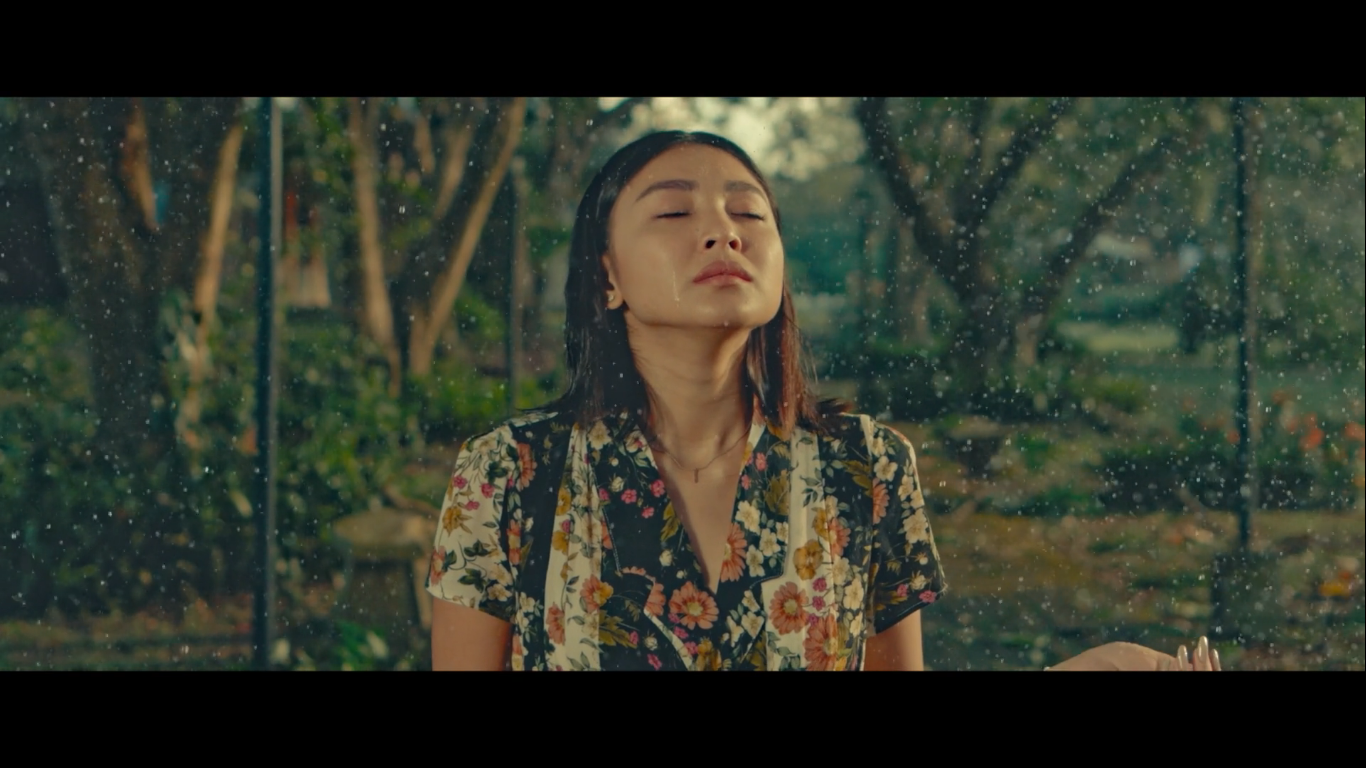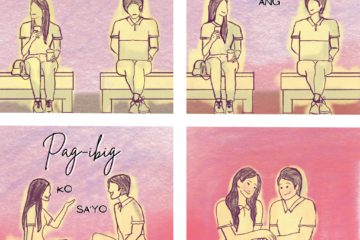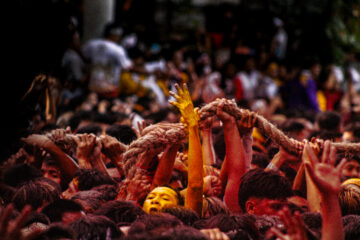
LIKE THE WEATHER, there are forces of nature that are at times unpredictable. Even so, if the rain pours hard in life, people are taught how to dance with it. This shows that sometimes, there is nothing wrong with letting the stream take you wherever it goes. After all, the rain will eventually pass and life will still go on.
Written and directed by Irene Emma Villamor, Ulan was released in 2019 and is currently one of the films featured in this year’s Pista ng Pelikulang Pilipino.
Ulan tells the story of Maya (Nadine Lustre), a hopeless romantic who experiences consecutive misfortunes. She is the typical archetypal girl who grew up consuming love stories that would build up her high expectations in romance. Unfortunately, expectations could lead to a great downfall, and Maya was slapped with harsh reality.
Frame by frame, the film never failed to captivate the audience’s eyes. The use of contrasting warm and cool tones creates aesthetically-pleasing cinematography and betters the overall flow of the film. For example, the beginning of the film where young Maya encounters tikbalangs uses warm yellow tones. Then, in another scene where the older Maya encounters the same tikbalang, it is colored with cool blue hues

Throughout the film, Maya’s wardrobe conveys a statement: Dalagang Pilipina, which is a mostly floral-patterned dress that embraces her slim figure. In addition, the make-up and costumes for the tikbalangs and Aning (Angeli Bayani) are stunningly crafted; showing a great deal of artistry.
Nadine Lustre proved that she is a talented actress even without having her usual love-team partner. She portrayed Maya elegantly which complements Carlo Aquino’s compelling depiction of Peter.
Unfortunately, the movie falls short by utilizing overused tropes such as the “gay best friend” and the “prettier ex-girlfriend” tropes. These characters, aside from being cliché, are also two-dimensional and uncompelling; contributing nothing to the storyline.
A small yet commendable detail is that Villamor uses food, superstition, festivals, and local myth in the film; fully embracing Filipino culture. For example, the belief that adobo tastes better as it ages is mentioned by Maya’s uncle (William Martinez). Another one is the offering of eggs to the gods to prevent rain. After all, the aforementioned details are the nuances of Filipino culture.
Nevertheless, the most important feature of Ulan is its use of magic realism. It subscribes to the concept that there is magic in réal and that there is réal in magic. It hints at magic realism references from its roots in Latin-American literature yet Villamor successfully Filipinizes them.

With that in mind, Villamor uses Philippine mythological creatures, superstition, and the forces of nature to incorporate magical occurrences in an ordinary world, fully erasing the divide between the imaginative and the contemporary. Moreover, the notion of the figurative language is made literal such as finding a third eye on one’s head and the expression “ikinakasal ang tikbalang” during a sunshower.
Similar to Guillermo Del Toro’s Pan’s Labyrinth, Ulan unfolds like a children’s storybook. Despite being fairy-taleesque, it still refuses to adhere to the concept of “happily ever after.” Instead, it accepts the ending as a new form of beginning.
Even if Ulan is known for being uncanny yet romantic at the same time, it still never fails to reflect Filipino society’s issues. One of its notable scenes from the film is when Aning cries out “Pilipinas,” while striking upon a strong typhoon; emphasizing the harsh reality of typhoons in the country. Another one is that the film rejects the age-old narrative that women can only find happiness with men, because, in the end, Ulan greatly advocates for self-love.
Overall, Ulan is more than a cliché romantic film. It rejects the convention of modern filmmaking as it embraces a new and fresh take on the narrative. Ulan proves that magic realism is the future for Filipino films. In theory, this could be Villamor’s masterpiece. In the end, Ulan suggests that a love interest is not necessary to fulfill a love story. Instead, loving oneself is enough to make a person feel whole and complete. F




[…] READ: Ulan: A Force of Nature […]